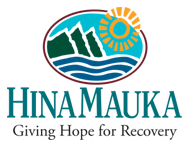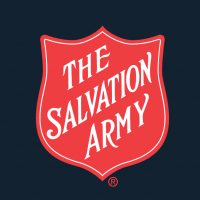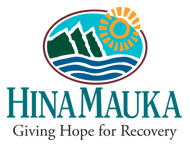Women In Need
Drug Rehab Center in Aiea, Hawaii
Women In Need in Aiea, HI is an addiction treatment center that offers comprehensive and personalized care to individuals struggling with alcohol and drug abuse, providing various levels of care and evidence-based treatment plans, accredited by SAMHSA and staffed by experienced professionals.
About This Hawaii Facility
Women In Need, a private rehab situated in the serene setting of Aiea, Hawaii, has been dedicated to helping individuals overcome alcoholism, drug addiction, and co-occurring mental health disorders since its establishment in 2019. With a compassionate and personalized approach, this facility offers comprehensive, evidence-based treatment plans tailored to meet each patient's unique needs.
• Multidisciplinary team of medical, clinical, and psychiatric professionals
• Emphasis on developing healthy coping skills and relapse prevention techniques
• Accredited by the Substance Abuse and Mental Health Services Administration (SAMHSA)
• Offers a range of care levels, including aftercare support, intensive outpatient, and sober-living/halfway residential options
Women In Need's commitment to providing the highest quality of care is evident in their SAMHSA accreditation and adherence to all necessary licensing requirements. Their experienced staff employs best-practice and evidence-based approaches, ensuring that each individual receives the most effective treatment for their specific needs.
The facility specializes in treating a variety of substance abuse issues, including alcohol and drug addiction, as well as co-occurring mental health disorders. Women In Need offers a range of treatment options, such as drug rehabilitation, intensive outpatient programs, interventions, and sober-living/halfway residential care, allowing them to cater to the diverse needs of their patients.
Genders
Ages
Modality
Additional
Accreditations
SAMHSA
Conditions and Issues Treated
Levels of Care Offered at Women In Need
This center offers a variety of custom treatment tailored to individual recovery. Currently available are Aftercare Support, Drug Rehab, Intensive Outpatient, Intervention, Outpatient, Residential, Sober-Living / Half-Way, with additional therapies available as listed below.
An Intensive Outpatient Program (IOP) is a form of drug treatment that allows individuals to receive the therapy they need while remaining in their homes and community.
An IOP is typically 3-5 days per week, at least 4 hours each day of treatment. Treatment can last for a few months or longer, depending on the situation.
An IOP is a step down from an inpatient treatment center and can be used as a step down from an inpatient stay or as a more intense form of outpatient treatment. IOPs allow for the flexibility to continue working and living at home while still meeting treatment demands.
The outpatient programs in Aiea, HI are for those addicted drugs or alcohol. The goal of the outpatient rehabilitation program is to make them stop abusing drugs or alcohol, reduce drug use or addictive behaviors, and become entirely sober. It is generally required to attend the outpatient program for 10-12 hours every week.
Patients can be administered on-the-spot medication to ease withdrawal symptoms such as anxiety, increased heart rate, and even depression. Groups such as Alcoholics Anonymous (AA) and Narcotics Anonymous (NA) can be used as a part of outpatient treatment to help maintain sobriety.
A Sober Living Home (SLH) is a term used to describe houses where people recovering from addiction can stay. The goal of these places is to provide immediate support and protection that the addict needs and force them to live a life free from substance abuse. SLH’s typically allow the addict to live there for 30, 60, or 90 days.
Residential treatment programs are those that offer housing and meals in addition to substance abuse treatment. Rehab facilities that offer residential treatment allow patients to focus solely on recovery, in an environment totally separate from their lives. Some rehab centers specialize in short-term residential treatment (a few days to a week or two), while others solely provide treatment on a long-term basis (several weeks to months). Some offer both, and tailor treatment to the patient’s individual requirements.
The main goal of an intervention is for the addict to go to rehabilitation and address their addiction.
Interventions are meetings organized by friends and family of an individual with addiction. A specialist is present to lead the discussion and motivate the addict to seek external support. Intervention services help family members to open up about their feelings and concern for the addict. This expressiveness usually results in the addict seeking treatment at a rehabilitation facility.
Aftercare support is a service many addicts need to ensure their success at recovery. This service usually includes one-on-one or group therapies, assistance from a sponsor and other types of help designed to make sure the patient continues living a life free from drugs.
Patients also may require medication to help them battle addiction. Some people have been able to successfully recover without additional medications, but others have found that they need help during their transition. Long-term, the patient must take the initiative to attend meetings and receive help from other addicts in recovery.
Therapies & Programs
People in addiction recovery can benefit from individual therapy. This type of therapy involves meeting with a therapist one-on-one. This allows for a personal and trusting relationship to be built so that the patient can be truly themselves and express any emotions they feel. Individual therapy leads to greater understanding and peace about your triggers for addiction and coping strategies to prevent relapse.
Couples therapy for drug addiction is based on the belief that addiction is a family disease. Everyone involved with an addict, not just the addict themselves, is affected by their behavior and the changes the addict goes through. The relationship also changes the addict’s significant other and has likely picked up some codependent behaviors. Codependency is a term used to describe a person obsessed with another person and their needs and feelings while neglecting their own. Addicts are usually people-pleasers, so it is understandable how one can become codependent in relationships with addicts.
Family therapy is a type of group problem-solving that aims to improve communication and relationships between the patient, their family, and sometimes friends. The main goal of family therapy for drug addiction is to create an environment where communication can occur without judgment, hostility, or blame. The therapist is with the family as they learn to communicate with each other differently, especially with the addict when s/he is using.
Group therapy sessions are held in rehab facilities, clinics, churches or community centers that offer drug addiction treatment. People who attend these groups are encouraged to voice their feelings and support other addicts in recovery. This helps group members strengthen their own recovery program while cheering on others who are struggling with sobriety.
Group therapy sessions provide recovering addicts with a chance to cope with everyday situations that many face. Group therapy sessions are held in rehab facilities, clinics, churches or community centers that offer drug addiction treatment.
People who attend these groups are encouraged to voice their feelings and support other addicts in recovery. This helps group members strengthen their own recovery program while cheering on others who are struggling with sobriety.
If you’re looking for addiction treatment, it’s important to find a facility that offers trauma therapy. This type of therapy helps people process and understand the past traumas that have led to their addiction. Trauma therapists will work with clients to help them understand their past and present relationships and show them that they are worthy of love. This therapy is typically done using visualization, discussion, and writing down thoughts and feelings.
Trauma Therapy is a form of therapy that involves working with a patient to help them process and understand the past trauma(s) in their life. This therapy is typically done using techniques such as visualization, discussion, and writing down thoughts and feelings. The main goals of trauma therapy is to help clients express their emotions and talk about what they are feeling.
Dialectical Behavior Therapy (DBT) is a form of cognitive-behavioral therapy that helps people understand how they connect their thoughts, behaviors, and feelings. It can give them more control over their actions, effectively stopping self-harm ideations and attempts in some patients. It also helps put those with borderline personality disorder into control for managing mental struggles.
A new study has shown that DBT works for those with self-harm behaviors and addictions by giving them therapy they can relate to and understand.
Cognitive Behavioral Therapy (CBT) helps addicts identify faulty, negative thinking so that they can work together with the therapist to find healthier ways of thinking. CBT focuses on specific aspects of each person’s thinking, feeling, physiology, and behavior. It aims to identify specific problems in these areas, and create a personalized treatment strategy.
Rational Emotional Behavior Therapy is a unique type of therapy because it helps addicts understand their emotional behavior to help them stay sober. It breaks down the addiction and behaviors behind it.
Rational Emotional Behavior Therapy aims to help you understand your emotions and how they affect your behaviors and addiction. Those that complete the program will be able to:
- Change their behaviors in a positive way
- Identify their feelings and reactions
Payment Options Accepted
For specific insurance or payment methods please contact us.
Additional Details
Specifics, location, and helpful extra information.
Aiea, Hawaii 96701 Phone Number(808) 486-1996 Meta DetailsUpdated April 15, 2024
Staff Verified
Patient Reviews
There are no reviews yet. Be the first one to write one.
Aiea, Hawaii Addiction Information
Hawaii has one of the highest rates of drug abuse in the nation. Methamphetamines and marijuana are the most common drugs involved in drug-related crimes in Hawaii. The state loses $500 million every year due to methamphetamine abuse, according to the Hawaii Meth Project. More than 1 million prescriptions for prescription drugs are given out every year.
Aiea, Hawaii has a moderate to a high level of drug addiction and abuse problems. Factors include easy access to drugs, poverty, and lack of education. The most commonly abused drugs in Aiea are alcohol, marijuana, cocaine, and methamphetamine. 18.9% of high school students have abused an illicit drug. Some of the most common types of treatment include inpatient rehab, outpatient rehab, and 12-step programs.
Treatment in Nearby Cities
- Naalehu, HI (222.1 mi.)
- Pearl City, HI (1.9 mi.)
- Kaunakakai, HI (62.8 mi.)
- Kaneohe, HI (9.6 mi.)
- Lanai City, HI (76.0 mi.)
Centers near Women In Need
The facility name, logo and brand are the property and registered trademarks of Women In Need, and are being used for identification and informational purposes only. Use of these names, logos and brands shall not imply endorsement. RehabNow.org is not affiliated with or sponsored by Women In Need.








